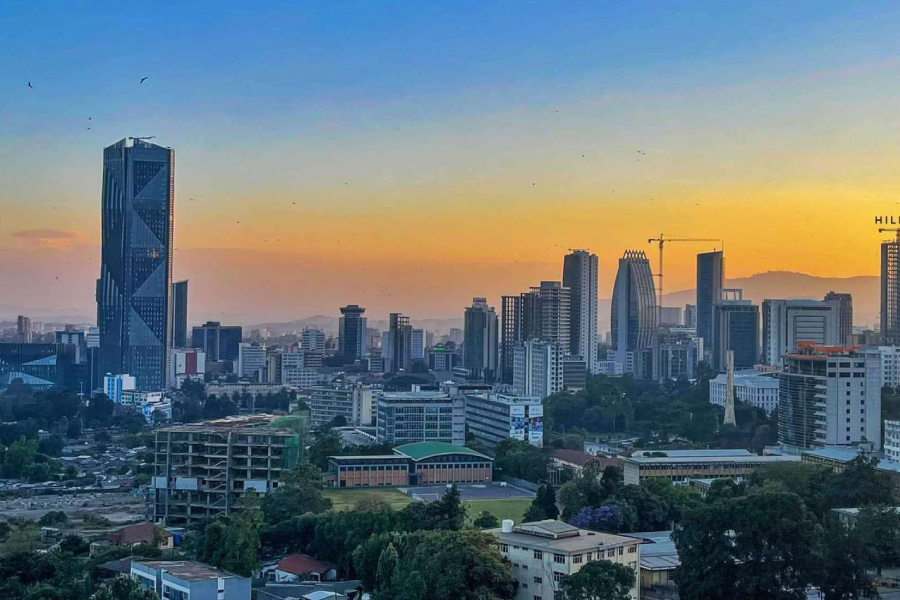
Commentaries | Jun 22,2019
Edgar Allan Poe was quoted in 1845 saying that the enormous multiplication of books in every branch of knowledge is one of the greatest evils of this age. It was because he believed this would present one of the most serious obstacles to the acquisition of correct information by throwing in the reader’s way piles of lumber in which scraps of useful wood must be groped for. It is a pearl of wisdom illustrating, above all else, the value of good editing.
One of the United State’s greatest authors, Thomas Wolfe, admitted that he needed editorial cuts. It is reported that the complete manuscript of ”Look Homeward, Angel” that Wolfe sent to his editor Maxwell Perkins was 6,000 pages. Actually, about a third of that came out as a book, epitomising the need for the painstaking work of editing.
The issue extends to Ethiopia. Be'alu Girma’s conciseness in not leaving a single word to waste in his widely-read Amharic novels, aside from their dramatic appeal, is illustrious. True, there were many concerns that there were too many portrayals of matters as “they really were,” expressly his character's description. No doubt, if it had not been that graphic or if it were completely omitted from his last work, “Oromay,” a dramatic book concerning the Dergue’scampaign against rebel forces in Eritrea, his tragic fate could have been averted.
Many were further perplexed by the speed with which Be'alu used to write and turn what he wrote into books. This was amidst the day’s ruffling censorship and his being busy due to his career, rising to Editor-in-Chief of the Amharic state daily, Addis Zemen, and an official at the Ministry of Information. All this was while the land went through its years of radical change, following the political revolution of 1974. They necessarily took their toll, making a story of their own to shape his manuscript into a book at the end of the day.
Cuts from censorship scissors necessitate transitional sentences, paragraphs, pages, and chapters. This all is possible with the repeated rounds of editing and pruning into shape by a quality editor to come up with thought-out and compelling narratives, with all the tweaks which distinguished Be'alu’s books as widely readable. It is a feat demonstrated repeatedly in the fictional literary works of the day’s other notable authors.
When it came to translations, no Amharic translation of a prose poem from English has been mastered by generations of writers as Max Ehrmann’s widely known 1927 "Desiderata" in Amharic.
"Go placidly amid the noise and the haste, and remember what peace there may be in silence. As far as possible, without surrender, be on good terms with all persons,” goes the famous poem.
The late Amare Mamo was an autonym for all that books are in Ethiopia, with his half a century of exceeding services as a writer, translator and editor. He has been setting a tone of "beauty," as his name signifies in Amharic – Amare - to the taste of audiences.
Behind Be'alu’s widely read books, he has always been around with the exception of his final work. He once said adamantly, vis-a-vis the influence he had on the writer, if he was involved, he could have warded off the tragic fate of one of Ethiopia’s most momentous writers - Be'alu, who disappeared under questionable circumstances shortly after the publication of Oromay.
Amare's “Desiderata” translation also proved that he had not only what it takes in knowing the two languages involved, but also others in the likes of cultures, emotions and histories. Last but not least, his foundational concern about promoting readership, particularly among children, was exceptional.
PUBLISHED ON
Apr 17,2021 [ VOL
22 , NO
1094]


Commentaries | Jun 22,2019

Commentaries | Mar 25,2023

Commentaries | Oct 02,2021

Viewpoints | Aug 01,2020

Fortune News | Aug 04,2024

Radar | Jun 12,2023

Radar |

Fineline | Mar 16,2019

Sunday with Eden | Apr 06,2019

Radar | Mar 23,2024

Dec 22 , 2024 . By TIZITA SHEWAFERAW
Charged with transforming colossal state-owned enterprises into modern and competitiv...

Aug 18 , 2024 . By AKSAH ITALO
Although predictable Yonas Zerihun's job in the ride-hailing service is not immune to...

Jul 28 , 2024 . By TIZITA SHEWAFERAW
Unhabitual, perhaps too many, Samuel Gebreyohannes, 38, used to occasionally enjoy a couple of beers at breakfast. However, he recently swit...

Jul 13 , 2024 . By AKSAH ITALO
Investors who rely on tractors, trucks, and field vehicles for commuting, transporting commodities, and f...

Oct 25 , 2025
The regulatory machinery is on overdrive. In only two years, no fewer than 35 new pro...

Oct 18 , 2025
The political establishment, notably the ruling party and its top brass, has become p...

Oct 11 , 2025
Ladislas Farago, a roving Associated Press (AP) correspondent, arrived in Ethiopia in...

Oct 4 , 2025
Eyob Tekalegn (PhD) had been in the Governor's chair for only weeks when, on Septembe...